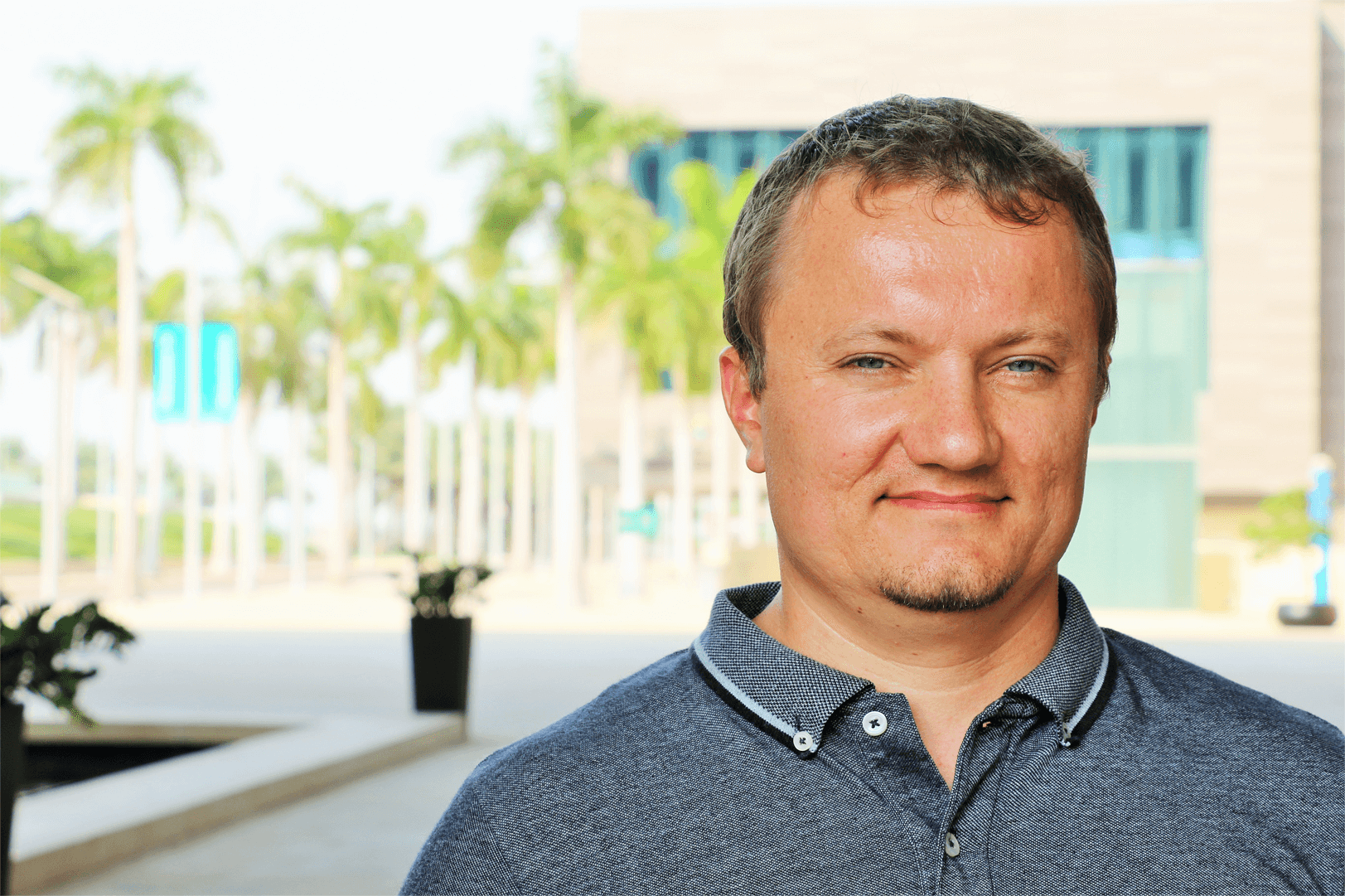Faculty Focus: Peter Richtárik

Peter Richtárik, who joined the University in February of 2017, is an associate professor of computer science and mathematics. Photo by Francesca Serra.
Peter Richtárik is a KAUST associate professor of computer science. He joined the University in February of 2017, and is affiliated with both the Visual Computing Center and the Extreme Computing Research Center at KAUST. Richtárik is an EPSRC fellow in Mathematical Sciences and a fellow of the Alan Turing Institute.
In 2001, he completed an Bc. in mathematics at Comenius University in his native Slovakia. Richtárik then moved to the U.S. in 2002, and five years later obtained his Ph.D. from Cornell University. Between 2007 and 2009, he was a postdoctoral fellow at the Universite Catholique de Louvain, Belgium, before joining the University of Edinburgh in 2009 as an assistant professor at the university's School of Mathematics.
The intersection of optimization and machine learning
Richtárik's research interests lie at the intersection of mathematics, computer science, machine learning, optimization, numerical linear algebra, high-performance computing and applied probability. Through his work on randomized decomposition algorithms, he has contributed to the foundations of the emerging field of big-data optimization, randomized numerical linear algebra and stochastic methods for empirical risk minimization.
"The kind of work that I do is theoretical and applied research at the intersection of optimization and machine learning. My research combines several disciplines such as mathematics, computer science, high-performance computing, machine learning and data science," he said.
Several of his papers have won international awards, including the SIAM SIGEST Best Paper Award, and he is the founder and organizer of the University's Optimization and Big Data workshop series.
'You can just focus on your research'
Richtárik says that the support his group of students and postdoctoral fellows will enjoy at KAUST was one of the important factors in his decision to join KAUST.
"In most places in the U.K., students have very limited funding granted to them—they need to apply whenever they want to travel. Moreover, unlike in the U.S., my U.K. grants could not be used to support my students. However, I really care about investing in my students—I want them to go to conferences, to learn about the newest developments firsthand from the inventors themselves, to present their work, to network," he said.
"In terms of the quality of my colleagues, they're all amazing here. I think the model at KAUST where some resources are offered to you on an annual basis and you don't have to spend excessive amounts of time chasing funding—you can just focus on your research—I think that is very attractive to any researcher," he concluded.
- By David Murphy, KAUST News
Related stories

